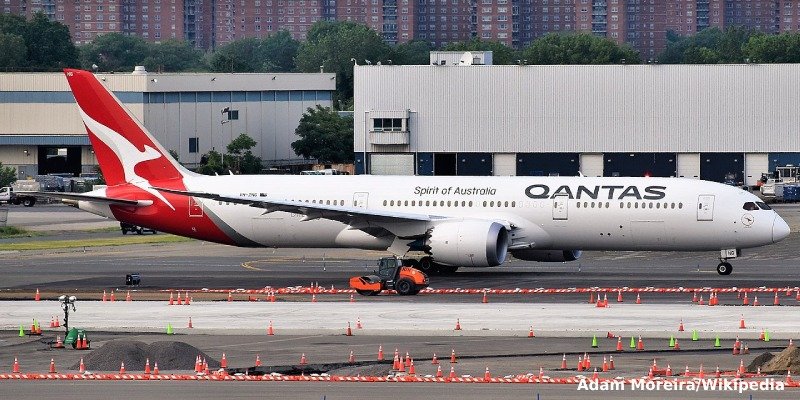Emirates Group has concluded the 2024-25 fiscal year with figures that mark a turning point in commercial aviation. With a record profit before taxes of 22.7 billion dirhams (US$6.2 billion), an 18% increase compared to the previous year, the Dubai-based conglomerate not only solidifies its recovery but also positions itself as the world’s most profitable airline group.
Sustained Growth and Global Expansion
Both Emirates and dnata, the Group’s two main entities, achieved historic revenues by responding nimbly to rising global demand for high-quality air transport services. The Group’s total revenue rose to AED 145.4 billion (US$39.6 billion), a 6% increase over 2023-24.
The Group’s liquidity also strengthened, with a record level of cash assets at AED 53.4 billion (US$14.6 billion), reflecting a solid operational strategy and robust demand. EBITDA also reached a new high: AED 42.2 billion (US$11.5 billion).
Emirates: The World’s Most Profitable Airline
The Emirates passenger and cargo division reported a profit before taxes of AED 21.2 billion (US$5.8 billion), a 20% increase over the previous fiscal year. With revenues of AED 127.9 billion (US$34.9 billion) and cash reserves of AED 49.7 billion (US$13.5 billion), Emirates stands as the global leader in profitability.
During the year, total capacity grew by 4%, reaching 60 billion ATKMs, nearing pre-pandemic levels. The airline carried 53.7 million passengers, a 3% increase, with a load factor of 78.9%. Additionally, passenger yield remained stable at 10.0 cents per kilometer.
→ Emirates to Hire Over 1,500 Pilots in Next Two Years
Investment, Fleet, and Destination Network
Emirates expanded its network to 148 cities across 80 countries, launching new routes to Bogotá and Madagascar and resuming flights to Phnom Penh, Lagos, Adelaide, and Edinburgh. It also enhanced services to 21 destinations and added 33 code-share agreements and 118 interline partnerships, providing access to over 1,750 global cities.
In 2024-25, Emirates welcomed its first Airbus A350s, with 4 units now operational, and expanded its cabin modernization program to 219 aircraft, representing a total investment of US$5 billion. Its order book includes 314 aircraft: 61 A350s, 205 Boeing 777Xs, 35 787s, and 13 777Fs.
Emirates SkyCargo on the Rise
The cargo division transported 2.3 million tons, a 7% increase over the previous year, generating revenues of AED 16.1 billion (US$4.4 billion), accounting for 13% of Emirates’ total revenue. Yield per ton-kilometer rose by 10%, returning to pre-pandemic market levels.
SkyCargo’s growth included adding Copenhagen to its cargo network, launching Emirates Delivers in Saudi Arabia, and introducing eQuote, a digital self-service tool for freight quotes in 75 countries.
dnata Also Sets Records
dnata reported a profit before taxes of AED 1.6 billion (US$430 million) and revenue of AED 21.1 billion (US$5.8 billion), backed by strong cash reserves of AED 3.7 billion (US$1.0 billion). Its expansion strategy includes new facilities in Amsterdam, Dubai, and Erbil, significantly increasing its cargo handling capacity.
Future Vision: More Investment and Connectivity
The Emirates Group invested AED 14 billion (US$3.8 billion) in aircraft, technology, and human talent. Its workforce grew by 9%, reaching 121,223 employees—the highest number in its history.
For 2025-26, Emirates plans to add 16 A350s and 4 Boeing 777Fs and will continue its cabin modernization program to enhance the customer experience. Additionally, work is underway to develop the new Al Maktoum International Airport (DWC) and the Dubai South area.
His Highness Sheikh Ahmed bin Saeed Al Maktoum, Chairman and CEO of Emirates Group, stated: “We have set ambitious goals, but I am confident that our team and Dubai’s winning formula will enable us to build an even brighter future. Our model is based on delivering excellence without compromising principles, with a focus on the long term.”
With this strategic vision, Emirates remains steadfast amid global uncertainty and reaffirms its role as a key driver of Dubai’s economic development and a global benchmark in aviation.
Related Topics
Qantas announces new route: Sydney and Las Vegas to be Connected for First Time via Direct Flights
FAA Issues Airworthiness Directive for Boeing 737 MAX Due to Risk of Excessive Cabin Temperatures
American Airlines Invests US$1 Billion to Transform Concourse D at Miami International Airport
Pratt & Whitney Strengthens Industrial Capacity in Georgia: $200 Million Investment to Boost GTF and F135 Engine Programs

Plataforma Informativa de Aviación Comercial con 13 años de trayectoria.




